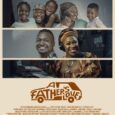Kill Boro: Fails To Meet Genre Expectations
Ini-Dima Okojie, Greg Ojefua, Hilda Dokubo, Brutus Richard, Kosisochukwu Samuel Ogboruche, Beloved Osagie, Philip Asaya and Yibo Koko
Desperate son and debt ridden father fight for their lives.
2hours 11minute
Courage Obayuwana
Steve Gukas and Dotun Olakunri
Priyi Diri
2024
Prime Video
Good dramatic irony
Weak character development for the lead character.
“Kill Boro” follows the story of a young boy named Elijah (portrayed by Kosisochukwu Ogbureche), who faces constant abuse from his father, Boro (portrayed by Phillip Asaya). Boro’s violence also targets Elijah’s mother, Boma (portrayed by Ini Dinma-Okojie). Desperate to protect his mother from the ongoing abuse, Elijah turns to a feared gang leader for help. The story unfolds in Azuama, a small, river-side town in an oil-rich region.
The film explore the theme of love, family and forgiveness. It also embraces culture and sets characters in a particular tribe to tell the story through that lens.
The film importantly explores the theme of family and domestic abuse, highlighting its impact on victims, especially children. It focuses on how children like Elijah react when they find themselves in difficult situations and feel burdened with responsibilities beyond their years.
The opening sequence promises a gripping and engaging ride, especially with the quick introduction of the villain, Jaguar (Yibo Koko), in his intimidating environment with tough-looking youths on edge. I expected a gun-slinging thriller, but the story instead focuses on an angry Boro antagonizing his own family without any setup to make the audience empathize with him. The entire Boro situation is disappointing. If the story aimed to show a man struggling with his failures and spiraling into self-destruction, we might find empathy. However, portraying a protagonist as a domestic abuser makes him undeserving of our sympathy. This character is what we call a “anti-hero.”
The major flaw of the film is the portrayal of Boro. How he is established in the first act is inconsistent with his depiction at the resolution. Boro exudes the qualities of an anti-hero, lacking idealism, courage, or morality. For much of the film up to the midpoint, he exhibits questionable ethics. Unlike traditional heroes, anti-heroes are flawed characters who engage in morally ambiguous actions but remain central to the story and often evoke sympathy or understanding from the audience. Boro, however, clearly lacks this sympathetic dimension. This crucial detail makes a significant difference in the genre the film aims to explore. On the other hand, Boro’s son, Elijah, effectively engages the audience.
The film tries to bring a fresh perspective to a common theme in Nollywood but falls short of its potential. While the filmmakers’ radical approach to the story is commendable, the movie has too much dialogue and not enough action for its genre. Breaking genre conventions without using creative storytelling to justify it diminishes the entertainment value and fails to meet genre expectations.
The strong characterizations lack a story that allows them to shine. While there are brilliant visuals scattered throughout, the scenes fail to come together cohesively. Ini Dima-Okojie, Kosisochukwu Ogbureche and most importantly, Blessing Uzero’s performance elevates the overall quality, and the third act attempts to compensate. The movie packs all its energy into the last twenty-five minutes, trying to create emotional tension. However, it’s a long wait for any real action.
Despite the flaws in Phillip Asaya’s character development, “Kill Boro” isn’t a bad movie overall. The opening hooks you, making you expect a gun-slinging thriller in the second act. Instead, the story shifts to Boro’s anger and his conflict with his family, and an hour later, we’re suddenly asked to focus on Boro’s debt, with the issue of domestic abuse pushed aside.
Boro’s actions and motivations are poorly justified, making it hard for the audience to connect with or understand him. His character lack the complexity or development needed to make his journey compelling. And the writer failed to balance the anti-hero’s negative traits of Boro with redeeming qualities, and fails to explore this moral complexity, that’s why we never find him interesting or worth rooting for, despite his sudden change even when he stopped beating his wife and son.
I appreciated the effective introduction of conflict, with regard to the kid actor, Elijah. He made the story engaging despite weak character of Boro. Elijah and Ini Dinma’s character on the other hand are well-developed characters with relatable flaws and imperfections. The acting performances from both of them were impressive across the board, particularly from the child actors Kosiso Ogboruche (Elijah) and Beloved Osagie (Orabere), who held their own alongside the experienced cast.
Beloved, who portrays Elijah’s closest companion, captivates with a delightful mix of attitude and subtlety in her performance. Their performances highlight the exciting potential of the next generation in Nollywood’s ever evolving landscape Phillip Asaya fail to shone as a struggling father, Ini-Dima delivered a standout performance as a supportive wife, and Ojefua brought a perfect balance of gentleness and authority to his role as Bossman. Blessing Uzero brought a much-needed intensity to her portrayal of Lyd.
Kill Boro’s storyline does not necessarily need the anti-hero’s development to excel. This was actually the film’s bane, as it did not meet the expectations of its genre, especially when it broke genre conventions without offering a compelling alternative. The cinematography excels, but most of the acting wobbles, especially when characters are expected to play tough. The fight scenes are cringe-worthy.






